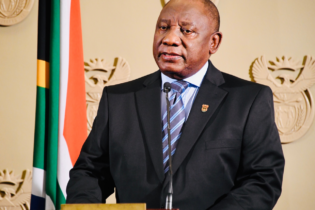Events have a significant economic impact on local, regional, and national economies and are crucial contributors to economic growth and job creation across the globe. In fact, the global business events industry is expected to be worth more than R 617b by the year 2026, ranking it as one of the leading economic enablers globally.
With more foreign investors and businesses acknowledging the opportunity in the African market, the events industry across the continent has experienced steady growth and been a significant contributor to the sector’s recovery post-pandemic. As the number of events climb, event organisers can – and do – play a pivotal role in reducing their carbon footprint and driving sustainability across their events. “Although considerable efforts are already being developed by the industry such as the Net Zero Carbon Events initiative – a global programme that provides guidance to event organisers and suppliers to reduce the environmental impact of their events, providing a framework to track and offset emissions – the exhibitions industry in Africa is constantly evolving and should reflect and re-evaluate the current practices and policies in place, and consider how these can be improved,” says Devi Paulsen-Abbott, Chairperson of AAXO.The adoption of sustainable measures in the events industry has several benefits. Not only do they reduce the environmental impact of events, such as reducing carbon emissions, waste, and water usage, but sustainable events can help to promote a positive image for event organisers, demonstrating responsibility and commitment to environmental and social sustainability.
Education on the importance of sustainability across the full business tourism value chain is showcased by AAXO member, RX Africa, who recently hosted World Travel Market (WTM) Africa in Cape Town – an event that puts sustainable and ethical tourism at the heart of its programming and forms part of WTM Responsible Tourism. Carol Weaving, Managing Director at RX Africa, says “Small changes in policies can make big changes to the environment. WTM Responsible Tourism is the largest programme of its kind in the world uniting travel companies, organisations and individuals interested in spreading sustainable practices and ethical methods within the travel industry.” By adopting simple measures that reduce the negative environmental and social impacts of events, organisers can increase their contribution to sustainability while ensuring economic viability:Energy Saving
There are a number of ways that events can implement energy-saving methods in their planning such as the utilisation of LED lights, which consume less energy than traditional lighting (significantly reducing energy consumption and save costs); and using renewable energy sources such as solar panels, wind turbines, or other renewable energy sources to power activities (reducing energy consumption and helping to reduce carbon emissions).By encouraging attendees to carpool, utilising public transport or providing shuttles, event organisers can reduce the number of cars on the road, which helps to conserve energy and reduce air pollution.







